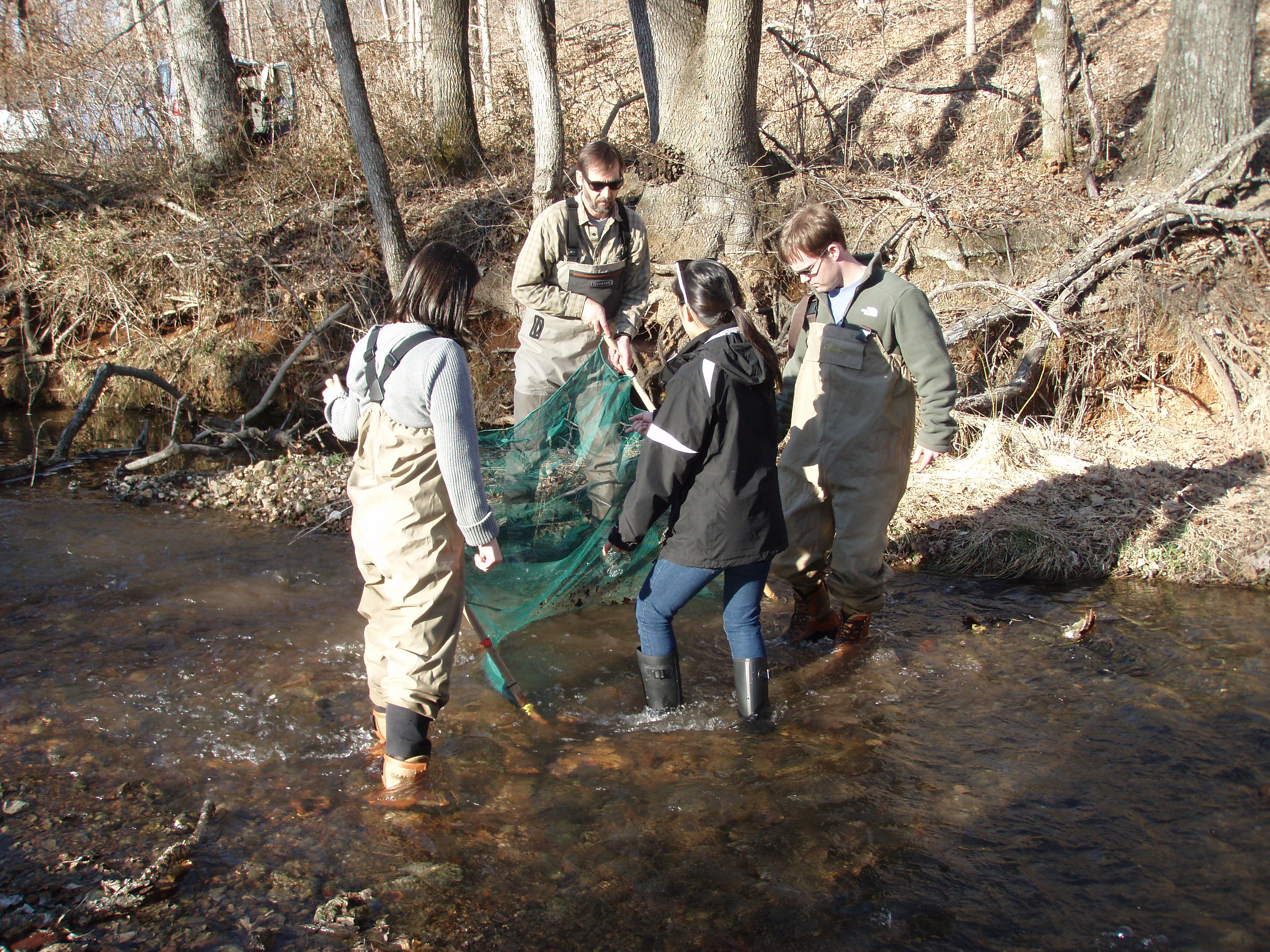
FAYETTEVILLE, Ark. – Dan Magoulick, a research professor at the University of Arkansas, is an ecologist and fisheries biologist studying the factors affecting the population and community dynamics of freshwater fish and invertebrates.
“My main focus is population and community ecology but I really work within the whole spectrum, from individual physiological ecology and behavioral ecology up to ecosystems,” said Magoulick, research professor and assistant unit leader in the Arkansas Cooperative Fish and Wildlife Research Unit, housed in the Department of Biological Sciences. “I’m interested in all of it, especially the role of disturbance in community dynamics, impacts of introduced species in aquatic ecosystems and aquatic ecosystem conservation.”
Magoulick’s recent research includes, among other things, studying the classification of Arkansas flow regimes and developing ecological-flow response relationships and environmental flows assessment for the Ozark region; effects of drought on stream fish and invertebrate population and community dynamics; and distribution, population genetics and factors affecting the imperiled coldwater crayfish.
In September, Magoulick was awarded an $80,208 grant from the Arkansas Game and Fish Commission to study the population status and genetics of the Mammoth Spring crayfish and the coldwater crayfish in the Ozark Highlands of Arkansas and Missouri. Both crayfish are candidates for being listed as endangered by the U.S. Fish and Wildlife Service.
Magoulick’s project is highlighted in the November 2014 issue of The Arkansas Catalyst, an online monthly newsletter from the Office of Research and Economic Development.
“We were doing work in the mid-1990s on crayfish related to conservation biology and we found some introduced species in the Ozark and Missouri Highlands,” Magoulick said. “The invader in this case is Orconectes neglectus, the ringed crayfish, which is native to the White River drainage but not native to the Spring River drainage. It has displaced two of the native species, the Hubbs’ crayfish and coldwater crayfish. It is a unique opportunity to study these populations. We don’t see a lot of these local invasions, mainly because we haven’t looked for them that much.”
The results of the study will provide information on crayfish population dynamics and invasion status for the state agencies and the U.S. Fish and Wildlife Service, which are all responsible for managing the freshwater resources in the Ozarks. It will also include a genetic study of the Mammoth Spring crayfish, which will determine whether it is a single species or multiple species.
“This will provide them information on what this invader is doing and whether it is displacing the native species and how fast it is reaching a certain area,” Magoulick said. “The agencies probably aren’t going to be able to eliminate introduced species but in many cases they can hold its population down, so it will be worthwhile information.”
Topics
Contacts
Dan Magoulick, research professor
Biological Sciences
479-575-5449,
Chris Branam, research communications writer/editor
University Relations
479-575-4737,